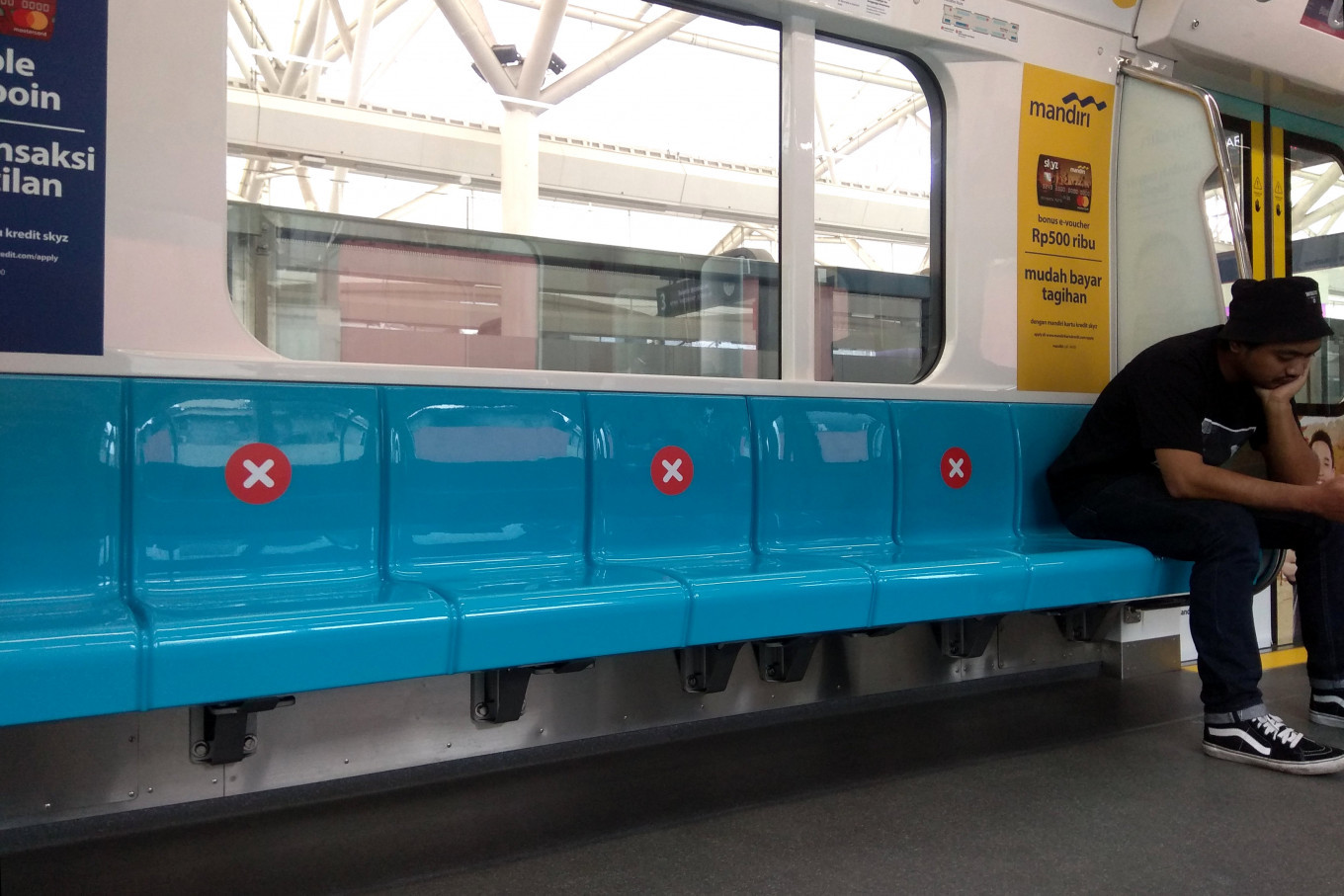Popular Reads
Top Results
Can't find what you're looking for?
View all search resultsPopular Reads
Top Results
Can't find what you're looking for?
View all search resultsMRT Jakarta safe from COVID-19, official claims
Change text size
Gift Premium Articles
to Anyone
T
he COVID-19 outbreak has somewhat shifted people’s perspective on public transportation, making them see it as presenting a high risk of transmission, especially amid physical distancing policies and restrictions on passenger numbers.
City-owned transportation company PT MRT Jakarta, however, aims to brush off the concerns, arguing that people will not get infected in train cars as long as health protocols are strictly implemented.
MRT Jakarta president director William Sabandar said a study by the Bandung Institute of Technology's School of Business and Management suggested that there was nothing conclusive about COVID-19 transmission on public transportation.
“The study showed that [coronavirus transmission on public transportation] has not been proven. This also demonstrates that the stigma surrounding public transportation as a place that is at high risk of transmission is not true,” William claimed during a virtual press conference on Thursday.
He said big cities such as Hong Kong, Tokyo and Manhattan that mostly relied on public transportation had recorded fewer COVID-19 cases compared to Kansas and Staten Island in the United States, where people tended to use private vehicles.
He said that if everyone maintained discipline in applying the proper health protocols, they would not get infected, wherever they might be.
MRT Jakarta, which operates Indonesia’s first mass rapid transit service, requires all passengers and staff to wear masks, maintain a safe distance and have their body temperature checked before entering stations and trains. The company has also reduced the number of passengers permitted inside train cars to 67, from 250 previously.
William added the firm also provided more protection gear to its officers and had improved air circulation in the train cars.
“MRT Jakarta remains safe [from COVID-19 transmission]. There are no facts nor data showing that transmission has occurred on the MRT because we have clearly implemented the health protocols,” he said.
MRT Jakarta has seen a dramatic drop in ridership since the Jakarta administration imposed social restrictions. Before the COVID-19 outbreak, the service saw an average of 90,000 to 100,000 passengers daily. This number has declined sharply, with fewer than 1,000 passengers recorded on some days over the past few months, since the implementation of large-scale social restrictions (PSBB).
The MRT, however, has started to see growing passenger numbers following the easing of restrictions in June, recording 20,793 and 21,478 passengers on June 30 and July 1 respectively.
To anticipate a jump in passengers in the future, William said the firm had prepared several strategies, namely to extend peak times by an extra hour, from the current 7 a.m. to 9 a.m. and 5 a.m. to 7 p.m. This will be done once MRT hits 70,000 passengers a day.
“MRT Jakarta calls for other operators to collaborate and cooperate to ensure that all public transportation services implement health protocols. This is to ensure that anyone taking public transportation is safe from virus transmission,” he said.
Jakarta Governor Anies Baswedan has announced the extension of the city's COVID-19 transitional mobility restrictions by 14 days and tightening supervision of traditional markets and the commuter line, as those places have become hotbeds of transmission.
The commuter line is a highly popular transportation mode connecting people throughout Greater Jakarta, and is under the management of state-owned commuter line operator PT KCI. He said other public transportation services operating in Jakarta, namely the MRT and Transjakarta buses, were relatively safe from potential infection.
“Transmission in other places, such as office buildings, shopping centers and other public transportation services, is pretty much under control, but work remains to be done at traditional markets and the commuter line,” Anies said during a virtual press conference on Wednesday.










